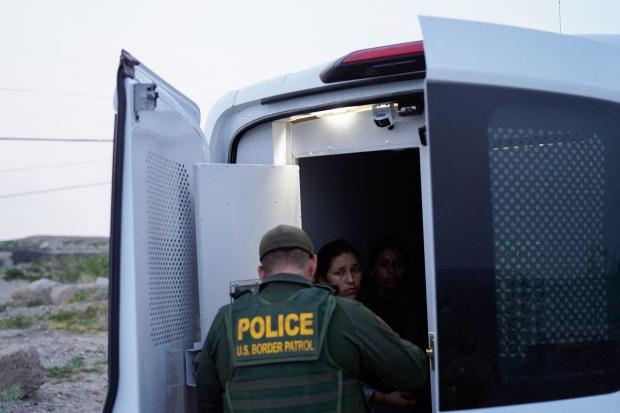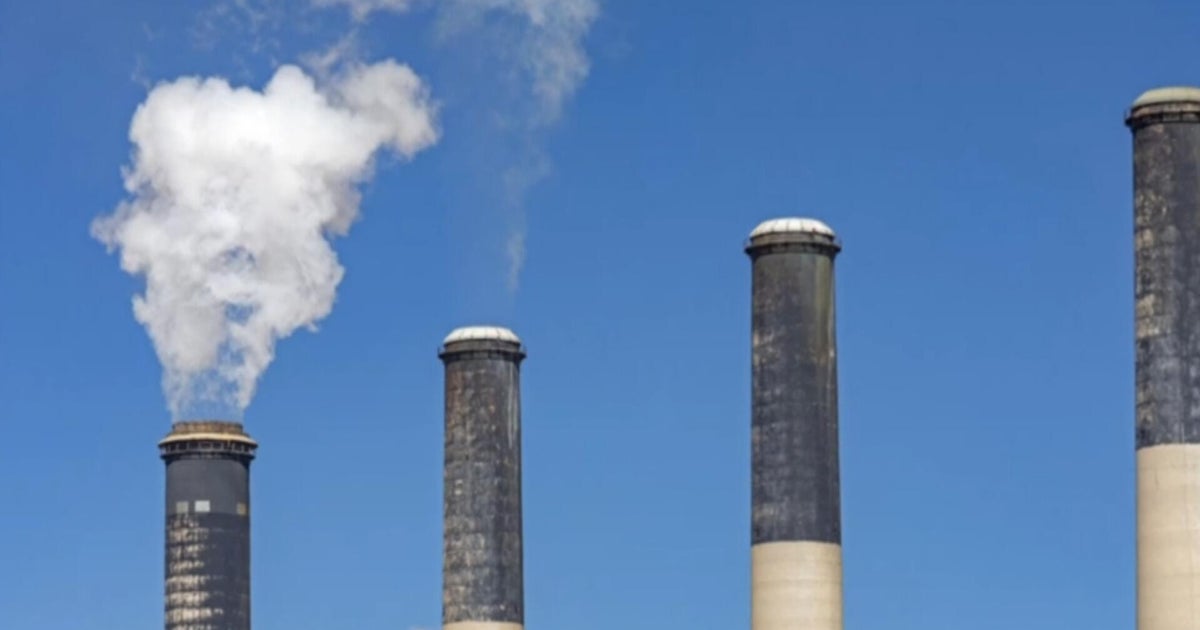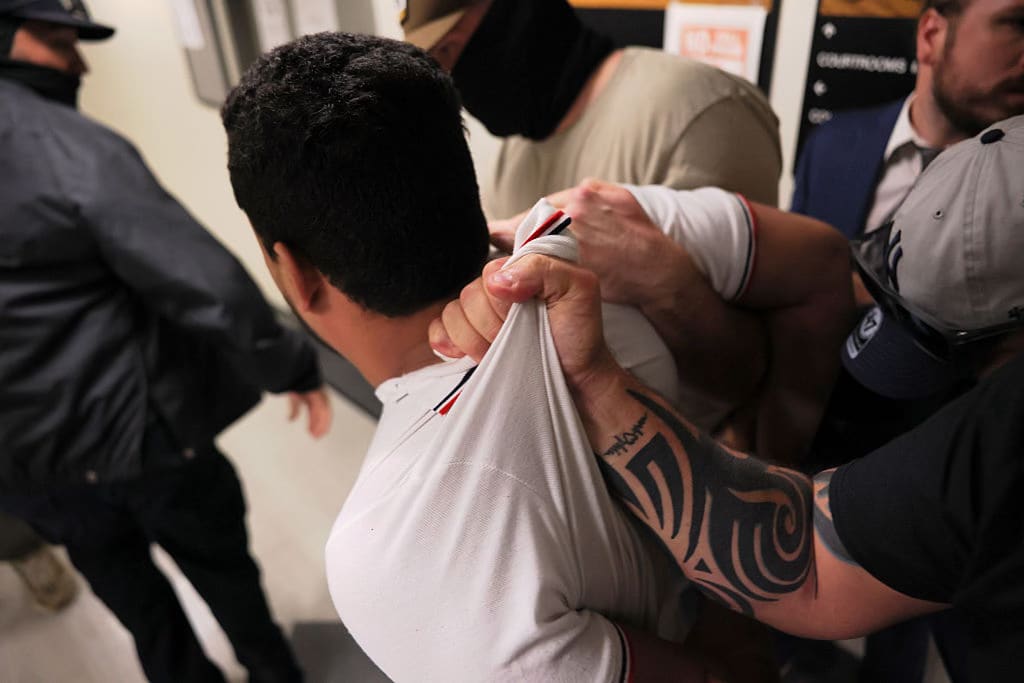U.S. finalizes plan to return migrants to Mexico under Trump-era policy as soon as next week
The U.S. government has finalized plans to return non-Mexican asylum-seekers to Mexico under a Trump-era border policy that the Biden administration is set to reinstate next week because of a federal court order, senior U.S. officials announced Thursday.
After months of negotiations, the two countries brokered an agreement to gradually restart the so-called "Remain in Mexico" program, which the Trump administration instituted in early 2019 to require asylum-seekers to wait for their court hearings outside the U.S., often in squalid tent camps.
U.S. border authorities could start returning migrants under the policy as soon as Monday, senior administration officials said during a call with reporters. Enrollees will be provided notices to appear at immigration courts in San Diego, El Paso, Laredo and Brownsville.
"All individuals from the Western Hemisphere will potentially be eligible" to be turned back to Mexico, one senior official said.
The revival of the program, officially called the Migrant Protection Protocols, is happening because of an August ruling from U.S. District Court Judge Matthew Kacsmaryk, a Trump appointee who found the Biden administration had improperly terminated the policy earlier this year.
The Biden administration is appealing Kacsmaryk's order, which stemmed from a lawsuit filed by Republican attorneys general in Texas and Missouri. It has also issued a new memo to try to end the program a second time. But the administration is currently legally required to enforce the ruling, since the Supreme Court declined a request to suspend it in August.
The revival of the Remain in Mexico policy, while court-mandated, will be a political setback for the Biden administration, which rapidly suspended the program in January and pledged to reverse hardline asylum policies enacted under former President Donald Trump, a Republican.
On the campaign trail in 2020, President Biden said the program forced asylum-seekers to live "in squalor." In his latest termination memo, Homeland Security Secretary Alejandro Mayorkas decried the policy's "unjustifiable human costs."
In recent months, Mexican officials urged the U.S. to make several "humanitarian improvements" to the protocols, including shortening the amount of time it takes judges to adjudicate asylum claims. Mexico also asked the U.S. to exempt vulnerable migrants from the policy, expand access to counsel and offer prospective enrollees vaccines against the coronavirus.
Under the finalized U.S. plans, asylum cases of migrants returned to Mexico would be completed within 180 days, administration officials said. At least 22 Justice Department immigration judges have been tasked with adjudicating asylum requests under the program, an official noted.
The U.S., the administration officials added, will also expand the categories of migrants deemed to be too vulnerable to be sent to Mexico, including asylum-seekers with physical and mental health conditions, the elderly and members of the LGBTQ community.
The U.S. will ask would-be enrollees if they fear being harmed in Mexico, which would trigger an asylum screening, the officials said. Under the Trump administration, migrants were not screened unless they affirmatively expressed fear of returning to Mexico.
Asylum-seekers will be allowed to consult with a lawyer before the screenings and prior to their U.S. court hearings, the officials added. U.S. government contractors at Customs and Border Protection sites will also offer coronavirus vaccines to adults and eligible children who are enrolled in the program, the officials said.
In a statement Thursday, the Mexican government announced it had agreed to restart the protocols on a "temporary" basis, citing U.S. commitments to address Mexico's "humanitarian" concerns. Mexico agreed to not deport asylum-seekers waiting for U.S. court dates in its territory.
While the U.S. is restarting the protocols because of the August court order, top Biden administration officials considered reinstating a version of the program as early as this spring to deter illegal border crossings, which reached an all-time high this past fiscal year, CBS News reported last month.
The reinstatement of the Remain in Mexico policy has alarmed advocates, lawyers, human rights groups, Democrats in Congress and even U.S. government asylum officers, who would be assigned to interview asylum-seekers subjected to it.
Several legal services providers have already declined government requests to be added to court contact lists for asylum-seekers returned to Mexico, saying they don't want to be complicit in the policy's revival.
"We certainly hope and expect that there will be counsel who will be available to help this population," one administration official said Thursday when asked about opposition from U.S.-based lawyers.
More than 70,000 asylum-seekers from Latin America were returned to Mexico under the protocols during the Trump administration. Many were returned to areas of northern Mexico that the State Department warns U.S. nationals not to visit because of violent crime and rampant kidnappings.
Hundreds of migrants subjected to the policy reported being kidnapped, extorted or assaulted while waiting in Mexico, according to reports by Human Rights First, a U.S. organization that advocates on behalf of asylum-seekers.
To mitigate these risks, administration officials said Mexico has agreed to provide security for buses that transport migrants attending court hearings in the U.S. The U.S. also intends to divert migrants away from Matamoros and Nuevo Laredo, two crime-ridden Mexican cities, so they can wait in "safe and secure" shelters in other parts of Mexico, one senior official said.
The Biden administration could face new legal challenges over Remain in Mexico's revival. The American Civil Liberties Union previously warned it could revive a Trump-era lawsuit against the policy if it was resurrected.
Under Mr. Biden, the U.S. has reversed several Trump administration asylum policies, including restrictions that disqualified victims of gang and domestic violence from humanitarian protection.
But the Biden administration has retained the most sweeping Trump-era border restriction, an emergency policy known as Title 42 that has allowed the U.S. to expel a majority of migrants without allowing them to request asylum since March 2020.





